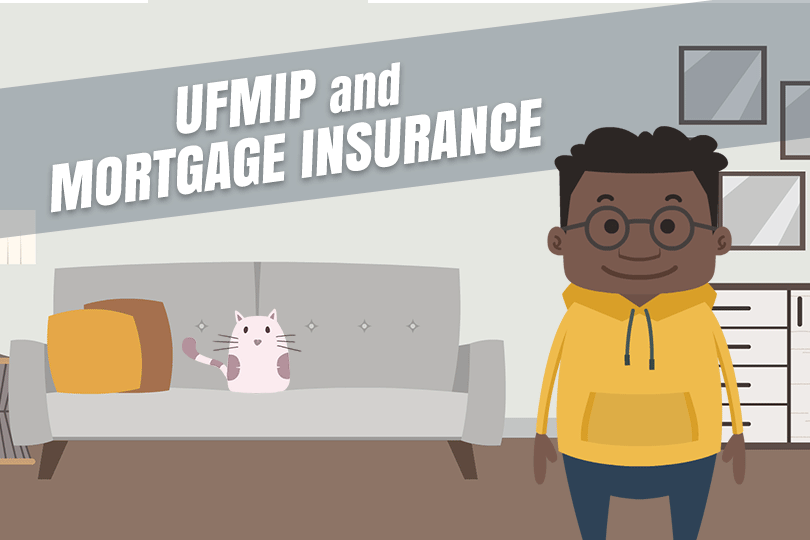Homeowner's Insurance - Why Do We Need It?
March 6, 2021
Homeowner’s insurance provides coverage to repair or rebuild your home, in the instances that are spelled out in the policy. Also known as hazard insurance, homeowner’s insurance typically covers damages to the house that occur from fire, smoke, theft, vandalism, and bad weather such as lightning, wind, or hail. Most policies also cover things inside in the home, such as furniture, electronics, and other possessions. They also cover the medical expenses and legal fees if people other than those living in the home are injured on the property.
Homeowner’s Insurance vs. Mortgage Insurance
Securing a homeowner’s insurance policy is required by your lender, but it is important that you do not confuse this policy with your mortgage insurance. While it is common to mix the two up, they are not the same! Homeowner’s insurance protects the borrower, while mortgage insurance protects the lender.
In the case of FHA loans, a monthly mortgage insurance premium (MIP) is paid along with the Up-front Mortgage Insurance Premium (UFMIP). In addition to funding the FHA, this mortgage insurance is there to protect FHA-approved lenders in case the borrower cannot repay the loan.
Similarly, conventional loans require private mortgage insurance (PMI). PMI is charged when borrowers make less than a 20% down payment on a conventional loan, making it riskier on the lender. The private mortgage insurance typically costs between 0.5% and 1% and is paid monthly until the borrower pays down enough on the principal amount - generally 20%, when the loan is no longer considered high-risk).
Never Assume
Unless specifically spelled out in your policy, do not assume that you are covered. Always keep in mind that you cannot claim coverage for issues that are not specified in your policy. This includes floods and earthquakes, but it may also apply to water damage from sewer pipes or storm drains, etc. Remember that flood and earthquake insurance is always sold separately. If you buy a home in an area designated as a flood zone or one that is prone to earthquakes, your lender may require that you purchase these additional policies.
Read and re-read your insurance policy so you know exactly what you are covered for. The wording of your agreement may be complicated, so take the time to ask your insurance agent as many questions as you have.
Costs and Coverage
The cost of your homeowner’s insurance policy varies based on several factors. First, there is the location of your home. This includes a bunch of factors within itself, such as how far your home is from a fire station, or how close it is to a body of water. Expect to pay a higher premium if you live in a high-crime neighborhood.
The age of your home will also affect the amount you pay. If you are purchasing a home built over 20 years ago, it stands to reason that there will be some upcoming claims for renovation. On the other hand, big upgrades such as a new roof or plumbing can bring down the cost of insurance.
A big factor that affects your insurance cost is the coverage you select. You can choose to have more extensive coverage in your policy if you have more valuables in your home, or to protect yourself from liability issues, but this will understandably raise your premium. The premium also varies based on the deductible you select. A higher deductible could reduce your premium costs up to 25%.
Finally, your insurance premium might look different from someone with the exact same policy because of your credit history. While a provider cannot refuse a homeowner, coverage based on their credit, they might offer a discount on the policy if their credit score is high enough. This gives borrowers one more reason to work on their credit when getting ready to buy a home.
------------------------------
RELATED VIDEOS:
Understand the Reasons for Private Mortgage Insurance
Carefully Read Your Closing Disclosure
Buying a Home With a Co-Borrower

FHA Loan Articles
March 11, 2025Adding a co-borrower to your FHA is a way to offset fears that you won't qualify for the mortgage on your own. An FHA loan co-borrower with a more substantial financial profile may offset the primary borrower's weaknesses, demonstrating a reduced risk to the lender. But for an FHA loan, don't assume that one borrower with good credit scores can offset one with non-qualifying scores. We ask 20 questions about co-borrowing to help you better plan for your FHA loan.
March 10, 2025Even if you aren’t considering your home loan options right this second, it’s smart to know your options if you decide to pursue a new home later. To that end, using a mortgage calculator is a smart choice for setting some basic budgeting parameters as you plan your path toward home ownership. A mortgage calculator helps you plan for future financial scenarios, such as buying new or refinancing a current home.
February 27, 2025 Buying your first home can feel overwhelming, especially when you start hearing terms like "subprime mortgages" and "FHA loans." Understanding these options is crucial for making the right decision. Subprime mortgages are designed for borrowers with less-than-perfect credit histories. This might include past issues like late payments, loan defaults, or even bankruptcy...
February 26, 2025Buying your first home can be exciting, but the mortgage process often throws a curveball of unfamiliar terms. Here are answers to common questions first-time homebuyers have about mortgage jargon and terms.
February 18, 2025Mortgages typically require mortgage insurance and homeowners insurance. They are both key parts of your home loan but they serve very different functions. Do you know the differences between the two? Find out how ready you are to begin the process of buying your new house.







